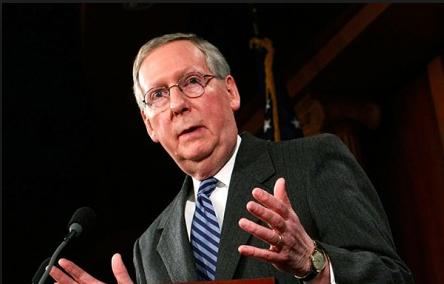The 2014 off-year elections produced more than expected victories for the Republican Party.
Both at the national and state levels, Republicans experienced gains that have not been seen since the 1920’s. Control of the United States Senate was perhaps, the most significant result of the election. As projected, Republicans gained seats in the House of Representatives. One of the surprise results of November 4 was the winning of the governorship of Maryland by Larry Hogan
Hogan’s message resonated with Maryland voters who obviously did not want another season of taxing and spending in Annapolis. The low turnout of voters, while helpful to Hogan, was disappointing. Hogan will have his hands full dealing with a significant majority Democratic legislature; however, all members of the Maryland legislature will be up for election in four years. Let’s hope they remember the message the majority of Maryland voters sent to Annapolis this year.
At the national level, Republicans will have working majorities in both houses of Congress. This should pave the way for more action on important issues in the Senate with the new majority leader and Republican control of Senate Committees. Perhaps even the logjam of legislation, created by former majority leader, Harry Reid, will be dealt with. Perhaps the Senate will return to being a more deliberative, legislative body. The Republicans were not the party of “No” when the outgoing majority leader would not call up House passed bills for a Senate floor vote. Change is coming, beginning January third.
At present, there is much “happy talk” regarding bipartisan and cooperation in Washington. This attitude may not last very long, especially since the 2016 presidential campaign has now begun in earnest. One might wager that the 2016 candidates will come from the ranks of current and past state governors. Hillary Clinton was really hurt with the recent national election. As with the governor’s race in Maryland, being tied to the current administration is not always the best credential when running for elective office.
The new Republican Congress will seek to deal with such issues as the Keystone XL pipeline, immigration reform, tax reform, improving the economy, the Ebola response, the sudden rise of ISIS and other priority issues of importance to the American people.
Former President Ronald Reagan said, “ I have wondered at times what the Ten Commandants would have looked like if Moses had run them through Congress. ”Perhaps the effectiveness and productiveness of the Congress will improve when the new Congress convenes in January. Their stature and reputation have nowhere to go but up. Perhaps the new Republican Congress will make serious efforts to stop and roll back many of the onerous regulations impeding industries and especially small businesses throughout the United States. Their efforts would be most helpful to the still fitful national economy. Governor-elect Hogan will have the same challenge in Maryland, where overzealous regulations and high taxes have been seriously hurting businesses and citizens. Many have voted “with their feet” and left Maryland. Come January, our government will change significantly at the state and national levels. It will be up to the American electorate to watch the progress of these governmental entities to see if promises are kept, changes made, regulations rolled back, and the future interests of the American people addressed in a cooperative and bipartisan manner. After all, that is what the voters this year said in a loud and clear voice.



Carol Voyles says
Okay. You won the midterms, but even stranger things could happen.
We may find a way to address our problems, especially once we finally get that Maryland’s taxing and spending are the least of our problems. After all, tax revenues as a share of our economy are within 1 percent of what they were decades ago, and Maryland’s total tax burden is also within 1 percent of nearly every other state in the Union. We’re all tied up in knots over 1 percent (or less) differences in the levels of taxation across decades and among states when we’ve experienced an 8.3 percent drop in real median family income since just 2007 (Census Bureau).
Add to that the fact that when Republicans suggest moving to a state with “lower taxes,” it’s likely one of the 10 red states that tax most regressively and take the highest percentages of the incomes of low-income workers. (Institute on Taxation and Economic Policy)
So which would you prefer – a 1 percent smaller tax bill or an 8.3 percent raise? Hmmm. We could logically start at the bottom with those raises, but our Republican representatives seem to be pretty much unanimously against those full time workers being able to feed their families without government assistance. Having just 400 families holding 50 percent of our nation’s wealth doesn’t seem to concern them, either – although that’s hardly a recipe for economic growth.
We may just get it yet. Let’s hope so. Then perhaps we’ll get something done.